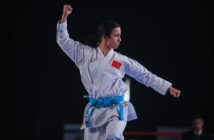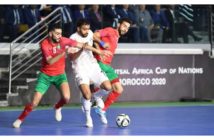Golf

Mena Golf Tour: Morocco’s royal pursuit with help from America’s friendly Casper
Steve Elling
The last time Billy Casper trekked to Morocco, a country he has been visiting for six decades, a few words from the American golfer left hardly a dry eye in the house.
Four years ago, when the Hassan II Golf Trophy was upgraded to a fully fledged event on the European Tour, Casper was invited to speak at a tournament function, with his address to be broadcast on national television.
Officials offered a script to Casper, but the Hall of Famer, who had first met the late King Hassan II in 1969, did not need notes to put the event into context, or describe what the tournament would have meant to Morocco’s former ruler, one of the most ardent golf fans Casper had ever known.
Casper spoke spontaneously for about three minutes, returned to his seat and noticed that many in the audience were dabbing tears from their eyes.
He had knocked them over with a heartfelt message of what the event, more than a decade after the king had died, still represented. “That tournament was the king’s dream,” Casper said. “And it was finally becoming reality.”
To fully grasp the sentimentality of the moment requires an understanding of what golf meant to King Hassan, and perhaps no Westerner knew the man better than did Casper, who won 51 times on the PGA Tour, seventh on the all-time list, and served almost as a Moroccan ambassador of the sport.
It is no understatement to say that if Casper brought professional golf to King Hassan, the ruler exported it to the Arab world, becoming the first in the region not only to embrace the game, but grip it as tightly as his putter on a slick four-footer to win a match with his American pal on the 18th green.
“He was a man who was very ahead of his time,” said Casper, 81, who will attend the Hassan II Trophy next week, at royal invitation.
They surely made an odd duo. The king and the commoner. The slightly built monarch and the beefy Californian.
One a Muslim, the other a devout Mormon.
Opposites can indeed attract.
On the golf course, they were kindred spirits, and Casper thinks the reason they hit it off was largely because, whenever they teed it up, he treated the king with respect but also as just another competitor.
The friendship surely was reciprocal.
The king, who regularly posted a score of around 40 for nine holes, seemed to love Casper’s company and competitiveness. The two were also nearly the same age.
Not that Casper was the lone golfer in the ruler’s affections. King Hassan, who had become acquainted with the sport while attending law school and serving in the French Navy, began converting gardens in the royal palaces into manicured courses.
He wanted to launch a tournament, and the late Claude Harmon, the head professional at the famed Winged Foot course in New York, a former Masters winner and the father of the teaching guru Butch Harmon, put together a list of players he thought the king might enjoy hosting.
Casper, at the peak of his playing powers, was on the list. The year they met, in 1969, Casper made six trips to Morocco to play with the king, who had been truly bitten by the golf bug.
The Hassan II Trophy was born in 1971, using a pro-am format with an informal vibe like the old Bob Hope Classic, and it attracted some of the best in the game.
Winners included Lee Trevino, Payne Stewart, Vijay Singh, Nick Price, Colin Montgomerie, Ernie Els and Padraig Harrington. “It was started as a friendship cup between Morocco and the United States,” said Mohamed Juma Buamaim, the director of the Mena Tour, which is in the second half of a two-week tournament run in Morocco.
“He was a good friend of the king, and Billy really helped the Hassan Trophy become what it is today.”
It is no coincidence, then, that the Mena Tour, in its third year, chose Morocco as the site of its first foray into North Africa.
In addition to loving the sport, King Hassan realised that golf had significant potential as a tourist drawing card, given Morocco’s climate and proximity to Europe.
“Because of where Morocco was located, it was sort of the winter watering hole for a lot of mainland Europe already,” Casper said. “So he built a lot of golf courses to draw in tourism.”
The site of last week’s Mena event, Royal Dar Es Salam, outside Rabat, has been described as one of the best venues on the continent, the South African courses included.
Truly a course built for a king, it hosted the Hassan Trophy event until the event was moved to Golf du Palais Royal in Agadir in 2011.
Casper describes his life and career as “a fairy tale, really”, and his chapter with the king of Morocco certainly fits that description.
They played every day during his frequent visits, with the king picking teams, setting the stakes and issuing the strokes each side would receive.
His rapport with King Hassan was genuine. During one match, Casper’s son, Bob, birdied four of the first seven holes. The whole contingent was supposed to take the royal train to another city to play the following day.
“If you keep making birdies, Bobby, you’ll be travelling tomorrow by camel, not by train,” Casper said, in jest.
King Hassan quickly added: “Yes, and the trip is 14 days by camel.”
Casper also served as something of an intermediary between Morocco and the US government.
In 1971, the US vice-president Spiro Agnew, visited Morocco and King Hassan insisted that Casper, already in town to log a few rounds with the monarch, attend a lunch along with Agnew and Moroccan dignitaries.
The US ambassador was circling the table, introducing various cabinet members and advisers to Agnew, yet when he got to Casper, he did not know what to say. King Hassan jumped up and said in French-accented English: “Minister of golf, Billy Casper.”
Probably the best possible description, actually. Although when they played, Casper did not roll over for the king.
Casper estimated he played between 100 and 150 rounds with King Hassan, and he gave everything he could muster. Same with King Hassan.
“Oh, he was a toughie,” Casper said. “I would play as hard as I could and he would play as hard as he could. This man just thrived on the competition and it seemed like he would always rise to the occasion.”
King Hassan could not get enough of the game. His daughters played, as did a sister. Some of the royal courses were floodlit. “So he could play during Ramadan,” Casper said.
He knew the courses intimately and enjoyed other, shall we say, royal advantages. “Well, he never had a bad lie,” Casper said, laughing, “because he always had a fore-caddie.”
King Hassan was a fighter, certainly. He survived two coup attempts before dying of natural causes at the age of 70 in 1999.
This weekend, Casper is flying to Agadir, where the Hassan Trophy was relocated in 2011, and will attend the tournament, which begins on March 28.
The royal family’s invitation to Casper – the reigning monarch, King Mohammed VI, is Hassan’s son – was simple.
‘The tournament is not the same without you.’
“How could I say no?” Casper said.






